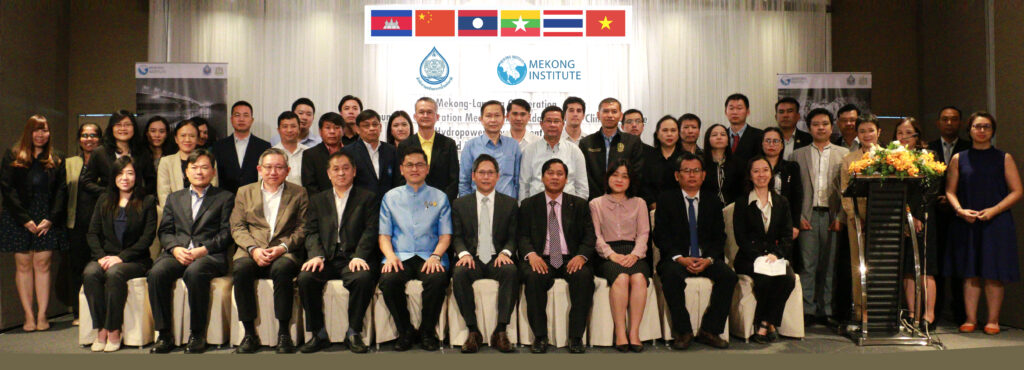Aug 6, 2019 (Bangkok, Thailand) – Experts from the six Mekong-Lancang countries gathered in Bangkok for the 2nd Regional Consultation held in conjunction with the Mekong-Lancang Cooperation (MLC) funded project on Transboundary Cooperation Mechanism on Adaptation to Climate Change and Hydropower Development Projects. This event is the last of a series of activities planned under the project which was launched in October 11, 2018.
The project outputs include working papers and policy brief aimed at fostering increased cooperation among Mekong-Lancang riparian countries to improve climate adaptation in the river basin. The project intends to highlight the impacts of climate change and correspondingly, propose recommendations to operationalize transboundary cooperation and hydropower management through water data and information sharing and exchange.
Addressing the participants from Cambodia, P.R China, Lao PDR, Myanmar, Thailand and Vietnam, Mr. Somkiat Prajamwong, Secretary General of Office of the National Water Resources (ONWR), Thailand, hopes that the project will help address skewed perception among riparian communities regarding development in the river basin and transboundary impacts of climate uncertainties.
For instance, the World Meteorological Organization (WMO) confirmed that the Earth just had the warmest ever June and July on record, which could potentially evolve into another episode of drought in the Mekong-Lancang river basin. It is in such situations that water storage infrastructures like hydropower dams and reservoirs have often been relied on to manage water levels in the river basin as was the case in 2010, 2016 and middle of this year. Taking its large water storage and regulating capacities into account, hydropower is also integral to climate adaptation of over 70 million people, more than 60% of whom are dependent on agriculture for livelihood – especially subsistence farming.
Drawing on its importance, Dr. Watcharas Leelawath, Executive Director of Mekong Institute, reiterated that the socio-economic progress in the river basin such as connectivity, trade and agriculture is contingent upon the successful transboundary cooperation of water resources for a future of shared benefits and regional prosperity. He continued by acknowledging ONWR and the government of the People’s Republic of China for the support and joint efforts in implementing the project.
The discussions and subsequent draft of the project output will be presented to the Joint Working Group (JWG) on Water Resources of the MLC to determine how to take the recommendations forward. The working papers and policy brief are culmination of the inception meeting, scoping visit, national consultations, desk research and expert interviews carried out between October 2018 and July 2019 by Mekong Institute in collaboration with ONWR and with technical support from national experts and the Stockholm Environmental Institute.








